|
Genres, Themes, Actors, and Directors:
- Alan Hale Films
- Cary Grant Films
- Delmer Daves Films
- John Garfield Films
- Submarines
- World War II
Review:
Delmer Daves made his directorial debut with this WWII-era propaganda film highlighting the bravery and strength of America’s “Silent Service” (submarine warfare). The screenplay is based on a true story of two U.S. submarines being sent to look for enemy ships in Tokyo Bay, though everything else is fictional, and (naturally) heightened for dramatic effects. During the first half, we see a fairly standard tale of diverse crewmen passing time together — including both humor (i.e., Cookie dresses up as Santa Claus; Wolf regales the men with stories of his womanizing ways):
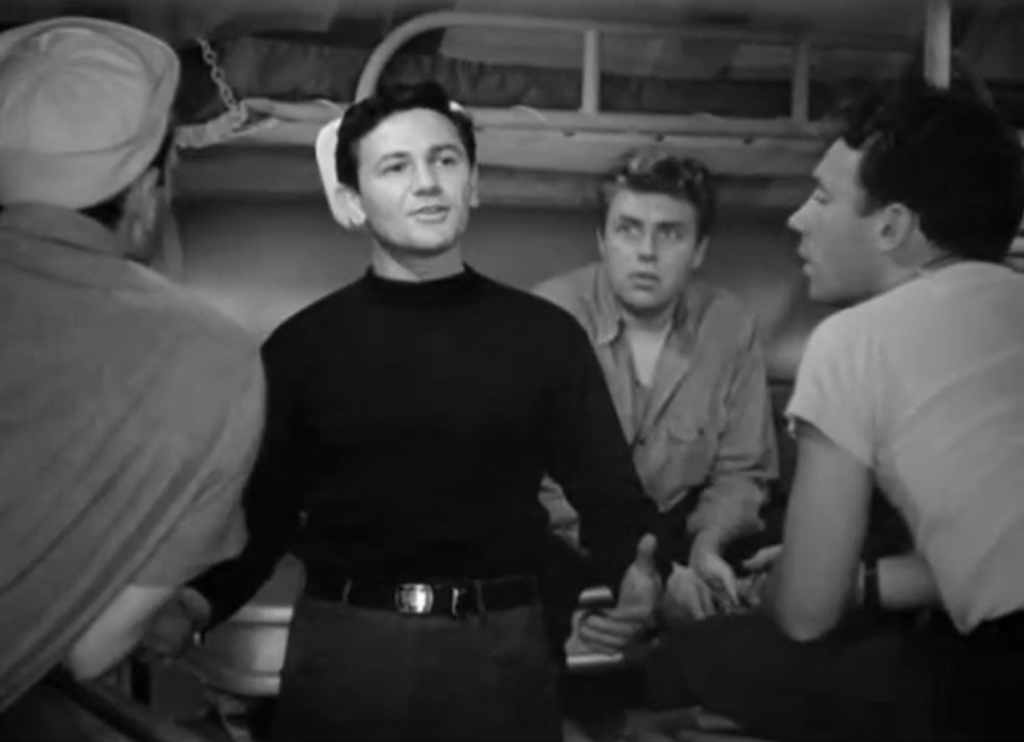
… and tension (i.e., Pills conducts surgery without training; Tommy defuses an unexploded bomb):
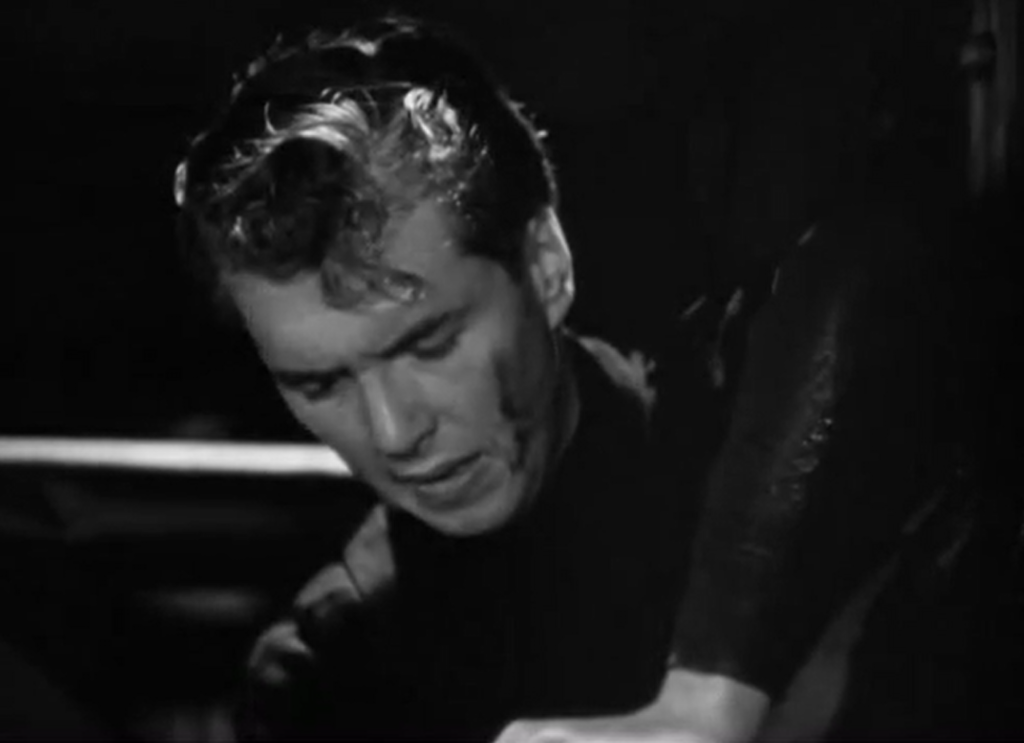
Things really get exciting during the final battle sequences, which admirably show the type of intense bombardment submarines were subjected to, and how legitimately fearful the men were for their lives.
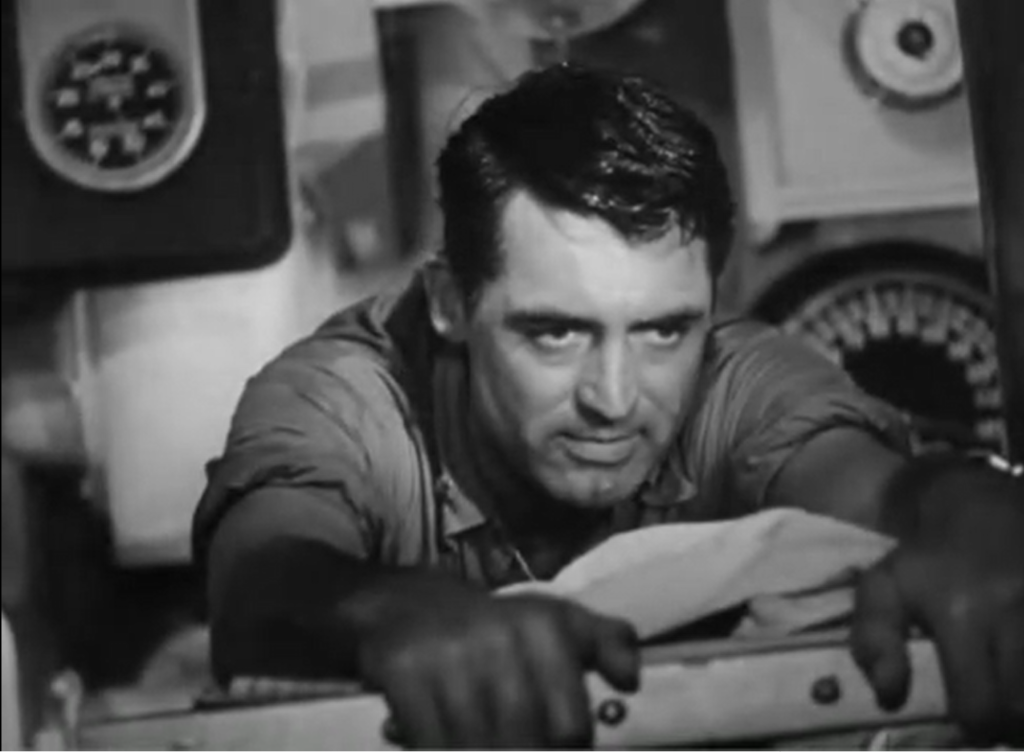
Viewers should be forewarned that there is plenty of “anti-Jap” rhetoric on display here — though the screenplay (by Daves and blacklisted writer Albert Maltz) is notable for including an attempt (by Grant) to explain why a captured Japanese soldier has just knifed and killed a crewman named Mike (Tom Tully) who was trying to bring him safely on board:
“At 7, a Jap kid is taking marches under an army instructor. At 13, he can put a machine gun together blindfolded. As I see it, that Jap started on the load 20 years ago to putting a knife in Mike’s back. There are lots of Mikes dying right now, and a lot more Mikes will die — until we wipe out a system that puts daggers in the hands of 5-year-old children.”
Notable Performances, Qualities, and Moments:
- Bert Glennon’s cinematography
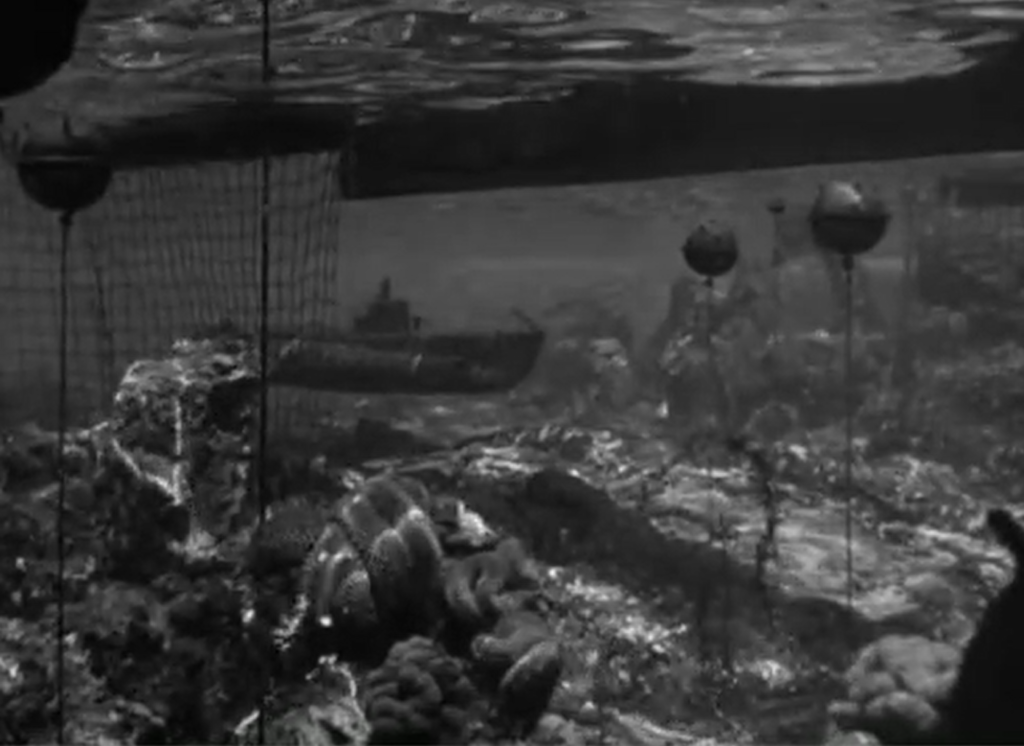
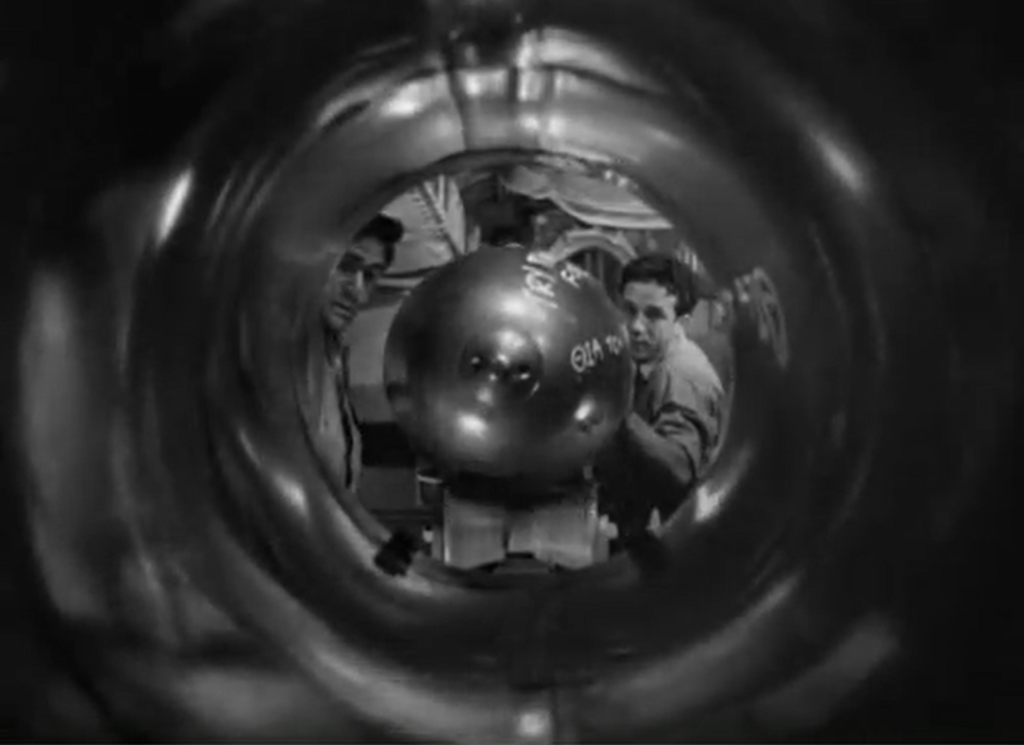
- The exciting depth charge battle
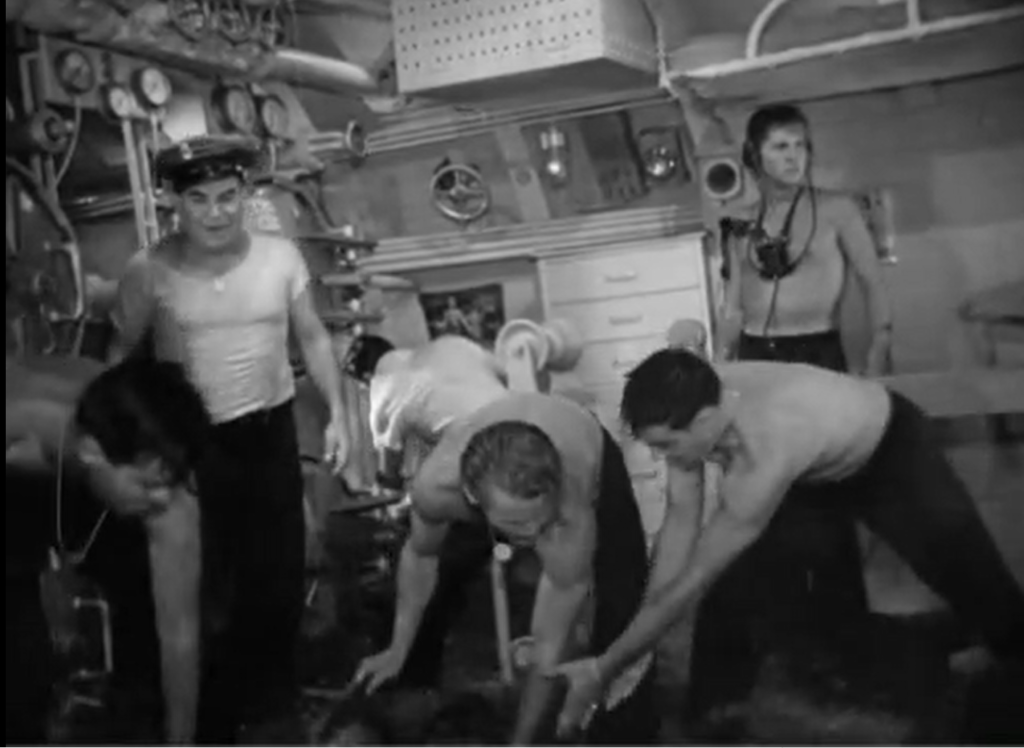
Must See?
No, though of course fans of WWII-era military films will want to check it out.
Links:
|
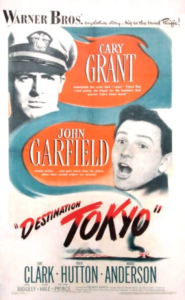






One thought on “Destination Tokyo (1943)”
In overall agreement with the assessment – not must-see, though it’s not a bad film. WWII film completists (and fans of director Daves) will want to see it.